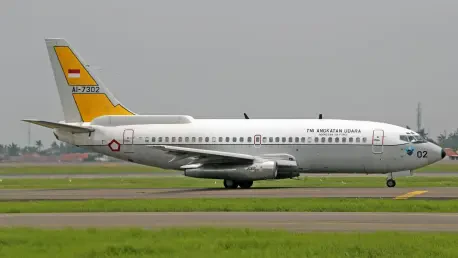In a rapidly evolving global landscape, the travel industry is enthusiastically adopting cutting-edge technologies and strategies to enhance operational efficiency and improve customer experience. As AI integration and sophisticated technological solutions become mainstays, major advancements and collaborations within the travel tech sector are driving growth and innovation. From AI-driven customer service to advanced booking mechanisms, the industry is undergoing a profound transformation. As these developments unfold, they are reshaping how travel operators and customers interact, pushing the boundaries of traditional travel management, and setting the stage for a new era of travel.
Collaborations Shaping the Future
Strategic Alliances Drive Market Penetration
Significant partnerships between tech firms and travel entities are redefining market dynamics. The collaboration between PKFare, a global travel product aggregator, and Wooba, a Brazilian travel tech firm, exemplifies this trend. By facilitating access for Brazilian online travel agencies to over 600 airline offerings through Wooba’s Travellink platform, this partnership simplifies complex booking processes and creates additional revenue streams. These alliances not only expand market reach but also demonstrate a shift toward regional market penetration facilitated by strategic collaborations. As the landscape transforms, travel operators increasingly rely on alliances to integrate technology into their services, simplifying the user experience and optimizing operational flow.
Across Europe, de Jong Intra Vakanties, a prominent Dutch tour operator, partners with Peakwork to harness Player Hub Technology. This innovation enables the tour operator to connect with a vast network of online travel agencies and metasearch platforms, substantially broadening their reach. The application of advanced technology in this context highlights the pivotal role these collaborations play in facilitating broader distribution networks for traditional travel operators. By integrating sophisticated technology solutions, these operators not only enhance their service offerings but also improve the efficiency and efficacy of booking processes. Such alliances reflect the travel industry’s growing reliance on technology to bridge the gap between service providers and consumers.
Modernizing Hospitality Through AI Integration
The integration of technology also extends to the hospitality sector, where companies like Profitroom collaborate with IDeaS, a revenue management software provider. Together, they introduce AI-driven demand forecasting and dynamic pricing strategies aimed at improving operational efficiency. By leveraging AI, these systems provide precise rate recommendations tailored to market demands, enhancing the competitive position of hospitality businesses. The alliance underscores the industry’s shift toward data-driven decision-making, where AI and data analytics are fundamental to improving profitability and customer satisfaction.
Moreover, Cloudbeds partners with SuiteOp to deliver a comprehensive smart-room ecosystem. This collaboration integrates room control technologies with property management systems, optimizing the guest experience through seamless automation. Additionally, by partnering with TakeUp, Cloudbeds incorporates automated real-time pricing tools based on market fluctuations. This consortium with AI-fueled service enhancements mirrors a broader trend of leveraging technology to augment guest interactions, thereby creating a tailored experience that caters to evolving customer preferences. These alliances are not isolated cases but part of a wider strategy to uplift the existing frameworks with technologically advanced solutions that streamline hospitality operations.
Innovations Driving Efficiency and Engagement
Transforming Corporate Travel and Short-Term Rentals
The landscape of corporate travel management is undergoing a vigorous transformation with the introduction of Teal, a cloud-based travel management platform powered by Spotnana. Designed to modernize business travel, Teal offers real-time policy controls and sustainability tracking features, supporting scalable travel programs essential for corporate needs. This innovative platform highlights an industry-wide focus on comprehensive travel management solutions that prioritize seamless user experiences while adhering to sustainability and policy requirements. The integration of such platforms is indicative of the travel sector’s broader aim to infuse technology into corporate travel, ensuring efficiency and productivity for businesses on the move.
Similarly, Boom, an AI-powered property management system, collaborates with InterCoastal Net Designs (ICND) to enhance direct bookings for short-term rental operators. This partnership leverages AI to automate guest interactions, thereby improving operational efficiency while providing an enriched guest experience. Boom’s integration with ICND highlights the growing trend of employing automated tools to meet the dynamic demands of the rental market. The focus on technology-driven solutions is expanding beyond traditional travel sectors, influencing the operational frameworks of diverse offerings, from corporate travel to short-term accommodations, effectively streamlining processes and maximizing market potential.
AI-Driven Customer Service Innovations
The deployment of AI-powered tools, like Hospitable’s Copilot, is transforming customer service paradigms in the travel industry. Copilot provides real-time insights and decision-making capabilities without relying on complex dashboards. By responding to plain-language queries, it empowers operators with enhanced situational awareness, thereby optimizing operations and management. This tool’s introduction signifies a significant shift towards intuitive AI solutions that reduce workload and streamline operations. The growing reliance on AI is a testament to its potential to revolutionize customer interactions, providing more personalized and efficient service that resonates with user expectations.
Further, HiJiffy’s Aplysia 3 chatbot, utilizing retrieval-augmented generation technology, offers context-aware and customizable interactions for hotel guests. By alleviating staff workload and enhancing guest services, Aplysia 3 exemplifies the travel sector’s commitment to embedding AI into customer service frameworks. This innovation represents an ongoing trend of leveraging conversational AI to improve efficiency in guest touchpoints, ensuring that service delivery is not only efficient but also personalized. As these tools evolve, they pave the way for a new standard in customer service, where AI plays an integral role in enhancing customer satisfaction and operational efficiency.
Industry Trends and Changes
The Rise of Connectivity and Automation
The focus on connectivity and automation remains central to the travel industry’s transformation. Hubby eSIM’s partnership with Paxconnect to offer customizable eSIM services enhances travel agencies’ offerings by providing mobile data accessibility in over 200 countries. This collaboration highlights a definitive shift towards improving connectivity and ensuring a seamless customer experience throughout the travel journey. As mobile technologies advance, the travel sector continues to explore new avenues for integrating connectivity solutions that promise enhanced traveler engagement and convenience, adapting to the digitally connected traveler of today.
Additionally, Sihot’s integration with Dingus showcases efforts to streamline hotel reservations and compliance processes for Spanish and Caribbean hotels through advanced automation systems. By focusing on automation, these integrations offer substantial improvements in efficiency and service delivery. The industry’s commitment to reconciling operational demands with cutting-edge technological capabilities signifies an ongoing shift towards automation and efficiency, responding to the growing complexities of global travel. This trend reflects the broader aspirations within the travel community to employ technology as a means of improving service delivery while reducing operational strain, setting a standard for future developments.
Expanding Horizons and Fostering Connections
The strategic appointment of industry veterans further underscores the importance of expertise in expanding market presence. UnderTheDoormat Group’s inclusion of Steven Kent, a former hospitality leader from Goldman Sachs, as an independent board director, signals a clear focus on scaling operations for their short-term rental platform into North American markets. Such strategic appointments demonstrate the value of leveraging industry expertise to navigate market expansion, confirming a need for knowledgeable leadership in steering growth initiatives. This move underscores the necessity for informed guidance and strategic oversight as companies aim to increase their influence across new geographical territories, reinforcing the need for visionary leadership within the sector.
Simultaneously, initiatives like WeRoad’s WeMeet program are fostering real-life connections through organized events across Europe. By extending beyond traditional travel services, WeMeet indicates an evolving interest in addressing social dimensions such as loneliness through community-focused platforms. This initiative points to an emerging trend within the travel industry, where the emphasis on social engagement creates opportunities for building communities and driving social change. Through these innovative platforms, the industry not only enhances travel experiences but also actively contributes towards broader societal issues, illustrating the dynamic and multifaceted roles of travel technologies and connectivity solutions.
Looking Ahead
In a swiftly changing global environment, the travel industry is keenly embracing revolutionary technologies and strategies aimed at boosting operational efficiency and elevating the customer experience. As artificial intelligence integration and high-tech solutions become essential components, notable progress and partnerships within the travel tech sphere are propelling growth and innovation forward. This encompasses AI-driven customer support services and advanced booking systems, leading to a substantial transformation within the industry. These advancements are reconstructing the interaction between travel operators and their customers, stretching the limits of conventional travel management, and heralding a new chapter in the travel era. The travel sector is increasingly reliant on these technologies, promoting a seamless and personalized experience that was once unattainable. As companies adapt to these changes, they pave the way for a future where travelers enjoy streamlined processes and tailored, efficient journeys.









